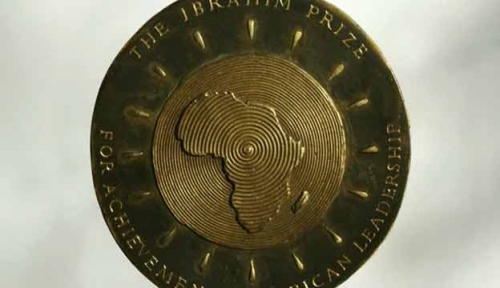
Friday prayers in Tahrir Square. Or a close-up of a quilt. REUTERS/Amr Abdallah Dalsh
For more on my encounter with a purple-shirted sabre-wielder, and how Nelson Mandela prevented my arrest, see here: http://www.thedailymaverick.co.za/article/2011-02-04-millions-defy-mubaraks-sabre-rattling-to-march-on-the-day-of-departure.
My quick verdict on the day. Mubarak has played it very well. He’s let the protests happen, he’s minimised violence, and he’s let the people blow off steam. Today’s demonstrations, the largest since the problems began, feel like a climax; the opposition must be wondering what more they can really do, without resorting to violence, that will persuade Mubarak to leave; they will also be wondering for how long they, and the country, can sustain this level of unrest. I have a feeling that the popular mood will start swinging against the opposition, especially after the apparent concession that Mubarak has made, culminating in Omar Suleiman telling the so-called Wisemen Committee of opposition leaders that he will assume all presidential powers and Mubarak will be president in name only; an ‘honorary president’. Albeit one without honour – and that is why I don’t think that’s a real concession. Neither do the opposition leaders, which is why they will keep going for as long as possible.
But who are the opposition leaders? I’m not sure that revolutions can be sustained by committee. Is Egypt missing a proper figurehead, a person to really take charge and offer a viable alternative? The best bet for that person, in my opinion, is still Mohamed ElBaradei; perhaps its time for him to stop playing the diplomat, and start playing the revolutionary. Then maybe he’ll get to play president for a while too.

 Speaking of choices: a much better one has been made by the Egyptian opposition, whoever that may encompass: Mohamed ElBaradei is a safe pair of hands as the opposition figurehead. I have had the privilege of meeting the man himself; he is measured, dignified, and supremely intelligent. He dances very poorly, but that is neither here nor there. He also has a moral backbone.
Speaking of choices: a much better one has been made by the Egyptian opposition, whoever that may encompass: Mohamed ElBaradei is a safe pair of hands as the opposition figurehead. I have had the privilege of meeting the man himself; he is measured, dignified, and supremely intelligent. He dances very poorly, but that is neither here nor there. He also has a moral backbone. 
